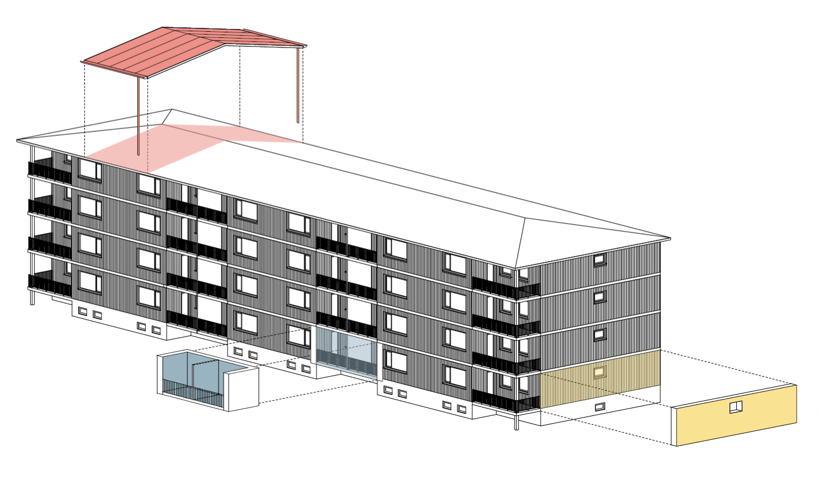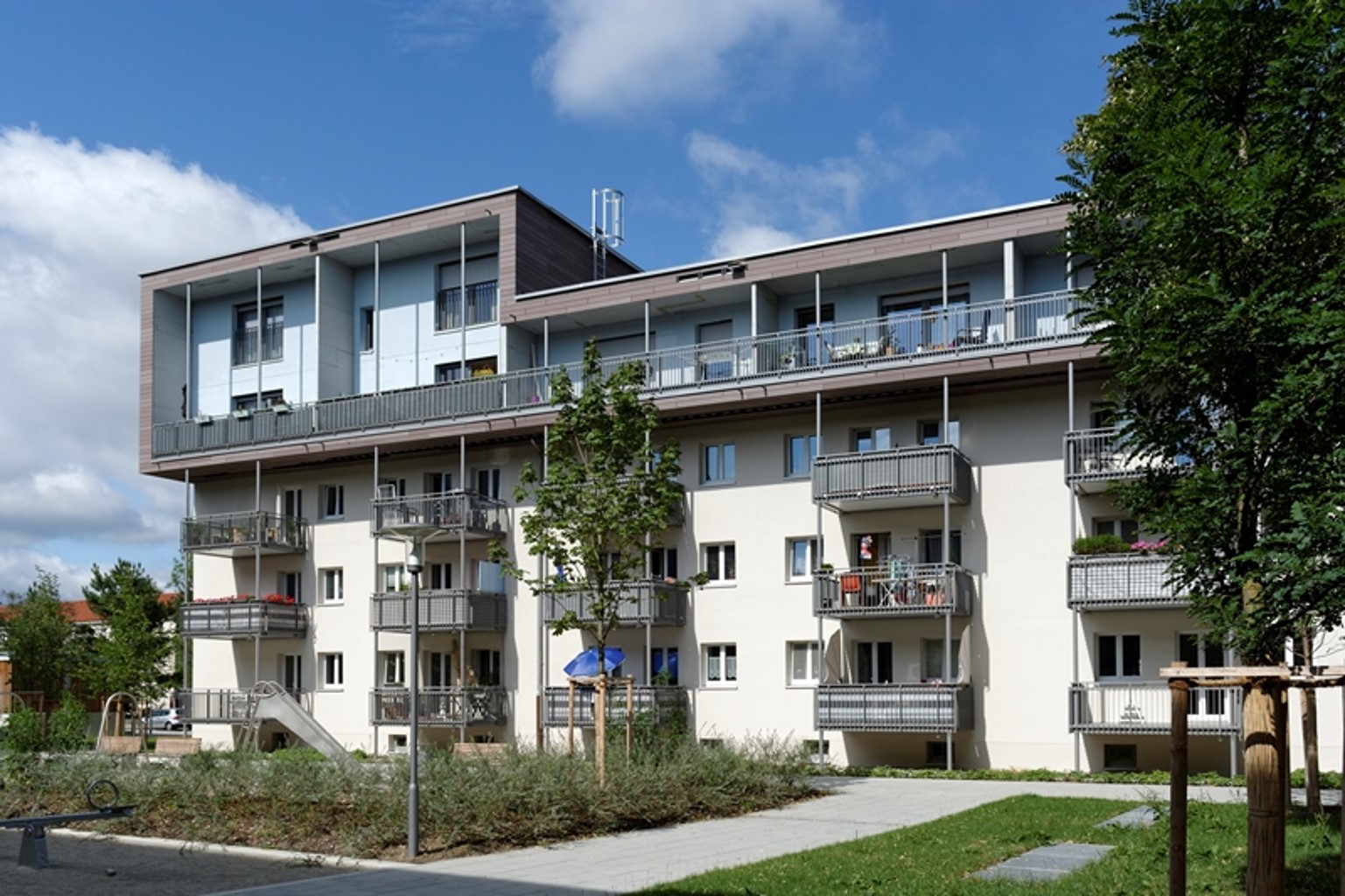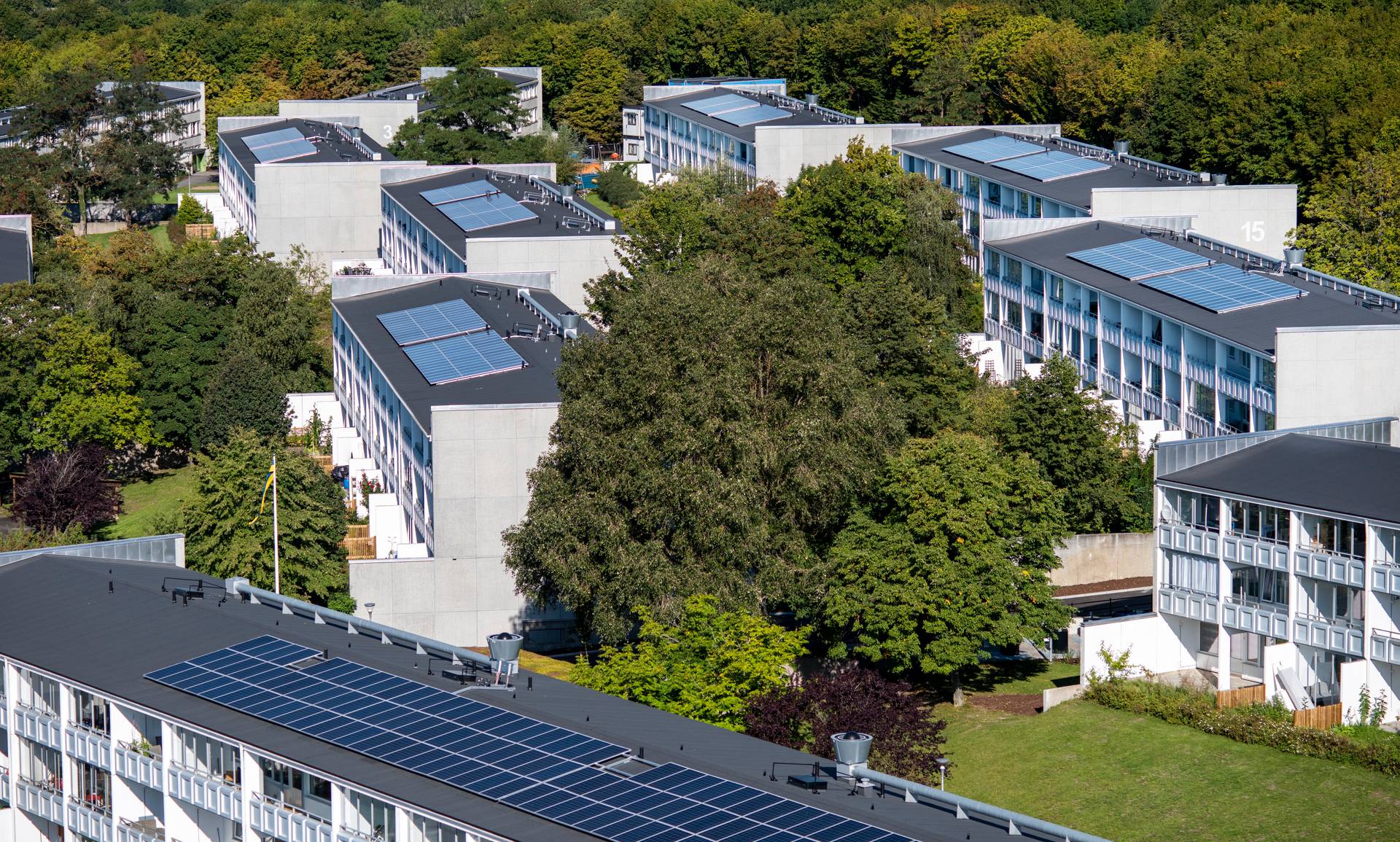The project was part of the ASCEND EU-Project, with the core idea of creating an energy-positive neighbourhood in an urban area. Munich served as a lighthouse for other cities, allowing them to learn from its approaches and experiences. One of the key players in this neighbourhood was Münchner Wohnen GmbH, the social housing company in Munich that owns the majority of the houses in the district.
A significant challenge was the financial limitations. Although the project secured €1.85 million in funding, this was not enough to finance all the planned initiatives. The standing building stock in the district is quite diverse, ranging from buildings constructed in the 1940s and 50s to newer buildings from 2011.
Energy and mobility solutions
Several ideas were pursued to reach the goal of energy positivity. In the field of mobility, mobile fast-charging stations and PV carports with EV chargers will be introduced. Wallboxes will also be installed for tenants in existing garages. To decarbonise the “last mile,” “microhubs” are planned. These are small PV-roofed stations that include parcel lockers and rentable cargo bicycles.
For electricity, Münchner Wohnen collaborates with the energy providers SWM and ISARWATT to install PV systems on all roofs that are both financially and structurally feasible. A pilot project for façade PV has also been initiated. Since heating is one of the biggest sources of CO2 emissions, houses will be connected to the district heating network wherever possible.


Innovative Refurbishment Approach
One special project pursued by Münchner Wohnen was serial refurbishment. This approach significantly reduces the time and cost of renovations by using pre-fabricated façade elements applied to several buildings at the same time. As a social housing provider, close coordination with the city administration and tenants was crucial, as efforts were made to limit rent increases as much as possible. With this refurbishment project, Münchner Wohnen was able to significantly reduce CO2 emissions from heating.

Another important fact is that wherever it was both construction-wise and financially feasible, Münchner Wohnen utilised modular timber construction for the façades.
Outcomes of the project
The project timeline proved too short. While there are plans to achieve energy positivity in the district, the goal could not be met within the expected schedule of 2025.

Key Lessons Learned
A climate-positive district can work, but it requires a lot of effort, well-executed processes, support from the city administration, and a sufficiently long timeframe.
Find out More
To find out more about this initiative, please contact Münchner Wohnen’s Coordinator through the Members Only Zone. If you are not yet a member of Eurhonet, find out about joining us.
Learn more about ASCEND EU Project here and Follow the project on LinkedIn.





